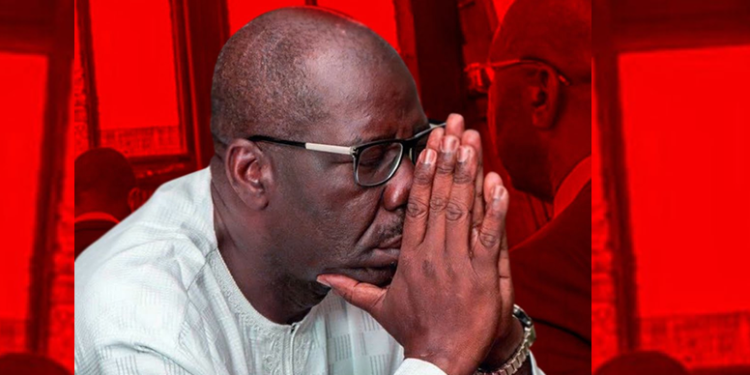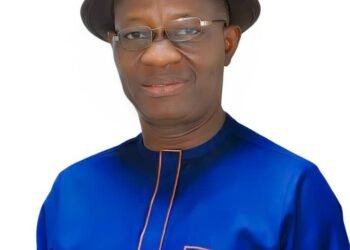The leadership of the People’s Democratic Party (PDP) in Edo state currently rests with Governor Godwin Obaseki, who displaced Chief Dan Osi Orbih. However, since Obaseki assumed leadership, the party has been plagued by ongoing crises.
The most recent blow came with the resignation of former governorship aspirant Engr. Gideon Ikhine. Prior to Ikhine, notable figures such as Senator Matthew Urhoghide, Barrister Kenneth Imansuangbon (popularly known as Rice Man), and former Commissioner for Information Mr. Adaeze Emwanta, among others, have also left the party.
Obaseki’s entry into the PDP, where he was offered the party’s ticket to contest for a second term in office, marked a turning point. He swiftly took control of the party’s leadership, leading to a series of litigation and internal conflicts.
Prominent figures like Chief Dan Orbih have now adopted a “sit-down-and-look” approach. Astute political players like Ogbeide Ihama have been neutralized, along with others such as Omo-Osunde Iyasere. Seasoned politicians have been sidelined in favor of technocrats.
Meanwhile, the story within the All Progressives Congress (APC) is not much different. Obaseki and his Deputy, Mr. Philip Shaibu, challenged their mentor, Comrade Adams Oshiomhole, relegating him to the political background. However, Oshiomhole has since gained prominence as a friend of President Bola Ahmed Tinubu and as a Distinguished Senator representing the good people of Edo North.
As resignations from the PDP continue to mount, one may wonder who remains in the party. Will the house collapse on the Governor’s head? Alternatively, will the Governor abandon the house and seek refuge elsewhere?
These questions raise concerns about the character and leadership qualities of Governor Obaseki. His transition from the APC to the PDP, which now appears to be crumbling under his watch, begs us to assess the extent of damage he may have caused to the governance system of the state.
Governor Godwin Obaseki’s political journey, from destroying the APC to seeking refuge in the PDP, raises further doubts about his leadership capabilities. The impact of his actions on the governance system of Edo state remains a pressing concern.
The stability and coherence of a political party depend heavily on the leadership it receives. In the case of the PDP in Edo state, Governor Obaseki’s tenure has been marred by internal strife, resignations, and a general sense of disarray. This begs the question: Can a leader who has been unable to maintain unity within his own party effectively govern the state?
The dynamics within the PDP also highlight the fragility of Obaseki’s leadership. The departures of key figures, including prominent politicians and grassroots supporters, signal a lack of confidence in his leadership and the direction of the party under his guidance. Such fissures weaken the party’s structure and erode its ability to effectively advocate for the people it represents.
Moreover, the parallels with Obaseki’s actions in the APC are hard to ignore. His fallout with Comrade Adams Oshiomhole, his former political mentor, resulted in a contentious power struggle that ultimately led to his departure from the party. This raises concerns about Obaseki’s approach to building and maintaining meaningful relationships, both within his own party and with political allies.
Ultimately, the future of the PDP in Edo state hangs in the balance. If the party collapses under Governor Obaseki’s leadership, it will have far-reaching implications for the political landscape of the state. It also calls into question Obaseki’s ability to effectively govern and deliver on his promises to the people.
As the political drama unfolds, the citizens of Edo state deserve clarity, stability, and a leader who can steer the ship of governance with integrity and vision. The impact of Governor Obaseki’s actions on the state’s political landscape and governance system cannot be underestimated, and the consequences will be felt by the people whose interests should be at the forefront of any political leadership.

















